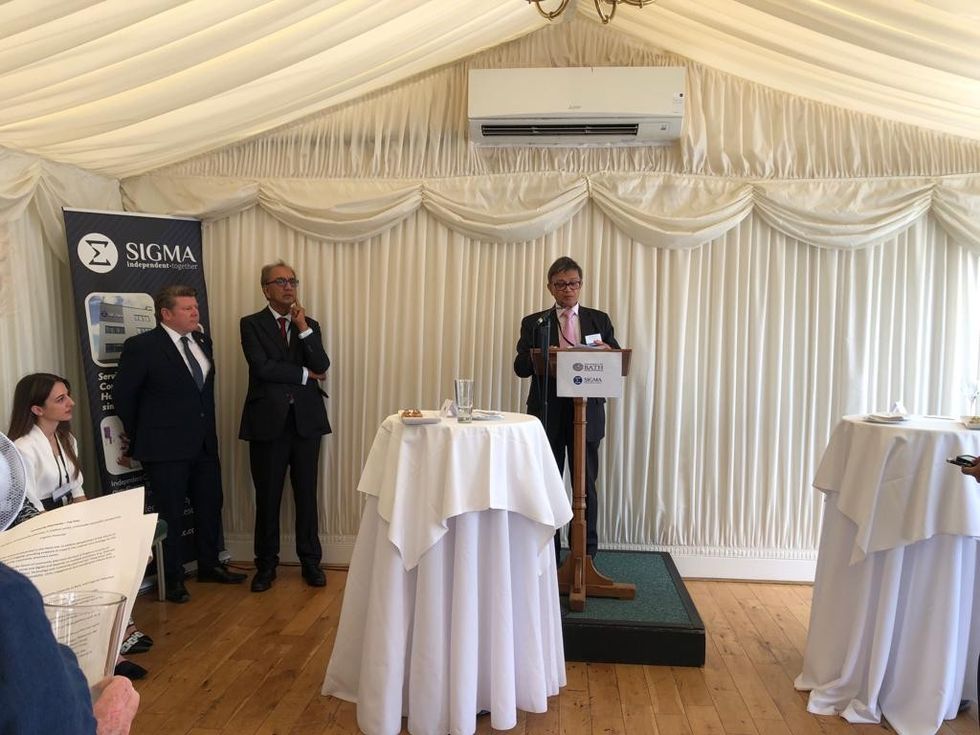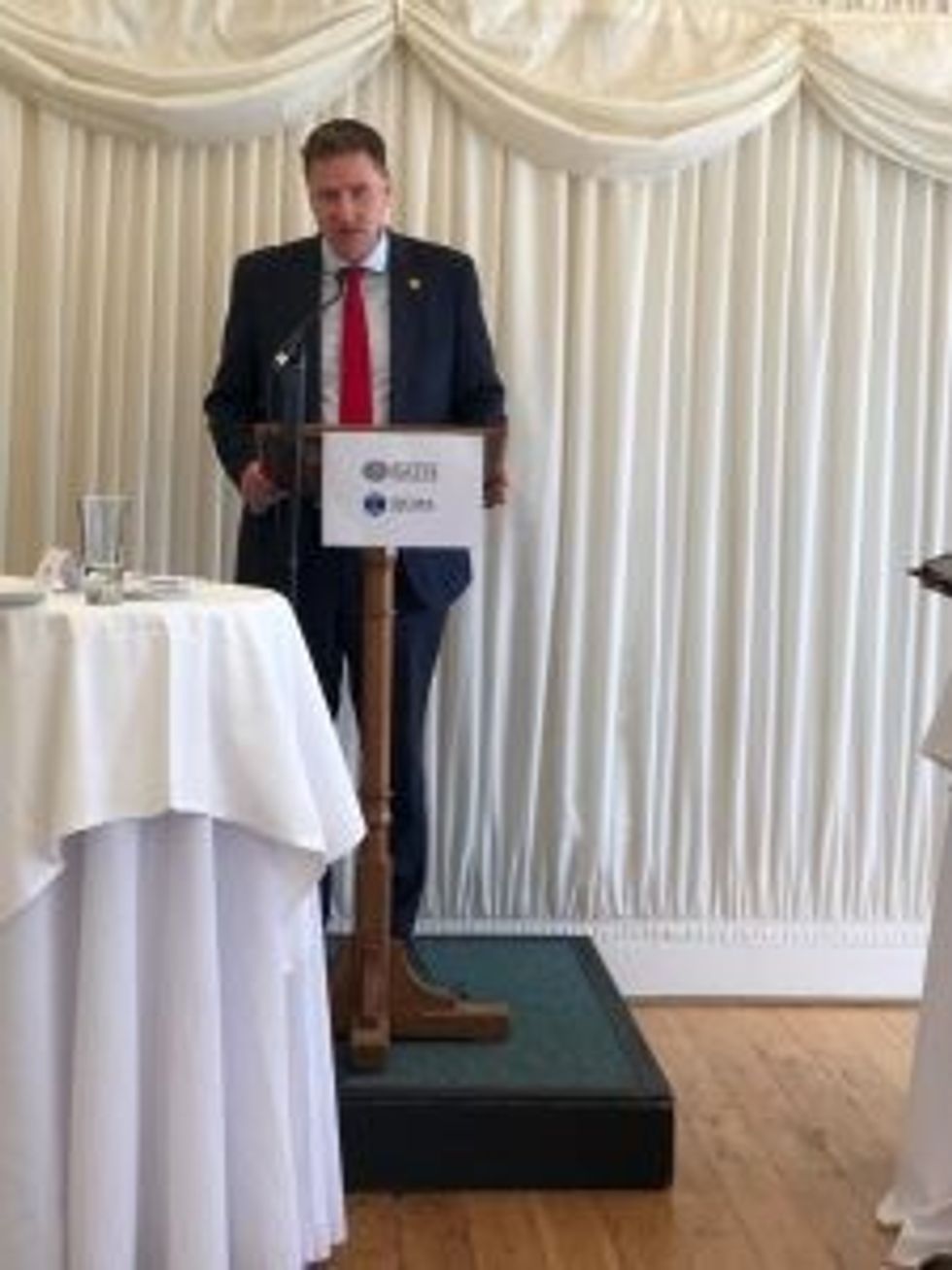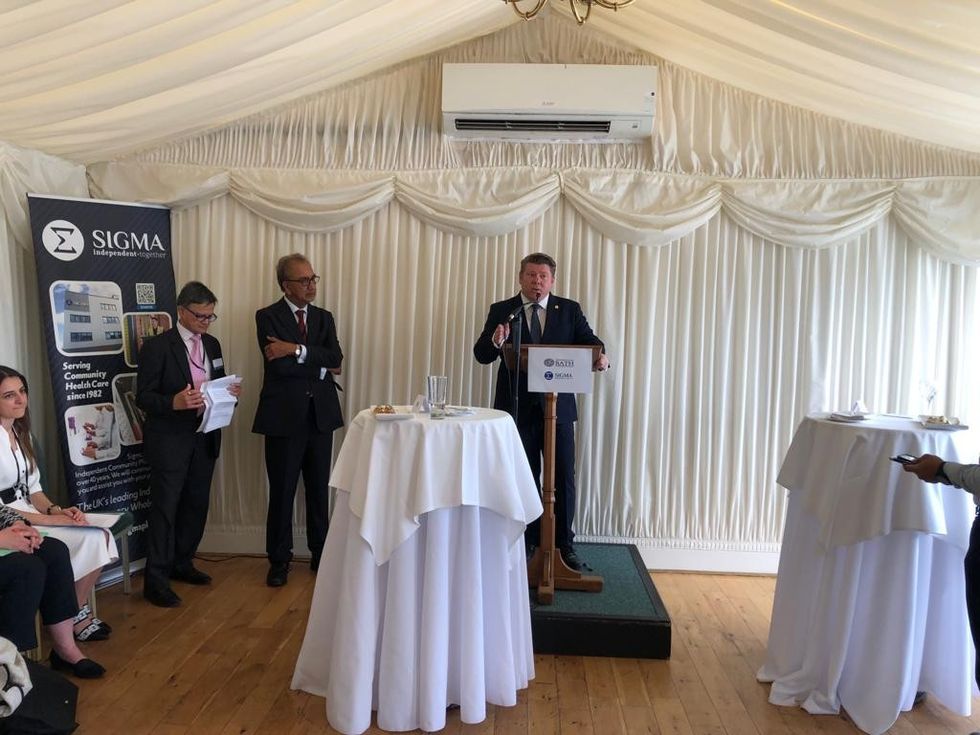Politicians, researchers and pharmacy leaders called on the government to make community pharmacy a fundamental part of clinical services at an event at the House of Commons on Wednesday (13).
At the launch of a research publication carried out by the University of Bath in conjunction with Sigma Pharmaceuticals, community pharmacy was described as an “essential pillar of health care provision” in the UK.
The aim of this research was to provide evidence to support a strategy for the future developments of community pharmacy to ensure the sector continues to meet the needs of the public in the NHS.
Researchers analyzed 25 health and community pharmacy related policies published by the department of health, the NHS, the pharmacy profession, and spoke to stakeholders from a wide range of backgrounds, including patients, pharmacists, NHS commissioners and GPS.
Among the recommendations, the government were urged to increase community pharmacy funding to avoid damaging closures and diminution of quality; assign more services to pharmacies and align NHS contracts for GPs and community pharmacies to encourage collaboration, not competition.
The research found that there had been a 25 per cent real term cut in funding since 2015 which has led to significant numbers of pharmacy closures.
“The challenges faced by community pharmacy have taken on a whole new dimension in the UK and the future of pharmacy has now become a major issue,” said Dr Bharat Shah, founder of Sigma Pharmaceuticals.
“How will it change in the next five years? Will pharmacy survive in the next five years? Is the current government’s funding strategy going to save pharmacy? These questions need to be answered.
“Whilst we may not have all the answers, this report addresses many of the key issues and questions, highlighting the problems and challenges that need a serious response.”
The report states that a “tipping point” has been reached for community pharmacy and there is an urgent need for a national vision and strategy to enable the sector to reach its potential.
There was a widespread recognition of the need to make more effective use of community pharmacy.
Patients said they valued community pharmacies and their staff, but are concerned about their workload and working environment, as well as the risk of permanent pharmacy closures.
This was reflected by community pharmacists, who feel demotivated, insecure and undervalued.
Community pharmacists can receive a boost through the Government’s Pharmacy First strategy.
Health secretary Steve Barclay told the House of Commons, in January, that he would like to see pharmacists “do even more”.
“I think that there’s a lot more that community pharmacists can do in terms of health checks, in terms of being the first port of call for people needing to access healthcare and pharmacists are pretty well placed to help patients navigate the system and tell them where to go,” said Barclay.
Earlier this year, the Health and Social Care Committee announced it had launched an inquiry into what action must be taken to ensure community pharmacies are ‘in the best shape’ to meet demands and future opportunities.
It came on the back of a £645 million cash injection into community pharmacy that was focused around the Pharmacy First strategy and an increased role in contraception and hypertension services.
Speaking at the event at the House of Commons, Steve Brine, chair of the Health and Social Care Committee and former pharmacy minister, said community pharmacists were perfectly placed to use their skills to do more clinical work and take the pressure off other parts of the NHS.
“There are GPs telling me that they are maxed out. Then there is this group of people (pharmacists) in healthcare telling me that they could do more and they want to do more, but couldn’t just do it on a whim.
“It seems to me rather obvious that there is this amazing primary care workforce, highly trained clinicians, trusted by the public on high streets up and down the country who want to help and could help.
“It’s been a long journey to try and get the powers that be to be convinced. If this prime minister (Rishi Sunak’s family ran a pharmacy) doesn’t get it and then nobody gets it. It’s time to really push this forward.”
Dr Evgenia Paloumpi, the lead researcher on the report, said that community pharmacies were well-placed to meet a number of the mandates set by the government for NHS England.
She picked out three of these mandates: cut NHS waiting lists and recover performance; support the workforce retraining, retention and modernising the way staff work and deliver recovery through the use of data and technology.
“It was announced that by the end of the year community pharmacists will be able to supply prescription only medications for seven common conditions within the Pharmacy First strategy.
“Initiatives like these are very encouraging and indicate that when pharmacy profession policies align with government policy priorities, they have a greater chance of success,” said Paloumpi.
“There’s a clear intention to adopt the latest technology to digitally transform the NHS, for example, the use of artificial intelligence (AI). However, how can we discuss the use of AI to give better treatment when community pharmacists still do not have read and write access to prescriptions. It’s very important to consider the integration of community pharmacists in primary care.
“There needs to be funding so that community pharmacy staff can provide new services, especially independent prescribing, and also have sufficient high quality private space for patients services.
“Community pharmacists have already proved their valuable contribution to the health of the communities.”
Dean Russell is one MP who has been a long-term advocate for community pharmacy and said other members of parliament also need to understand the crucial role pharmacists play in public health.
“During COVID, I was on the Health and Social Care Select Committee and I saw first-hand the important role community pharmacy plays in this country,” said Russell.
“Community pharmacists were the first port of call for patients when many GP surgeries had closed their doors, rightly to protect their staff.
“One of my proudest moments was in the very early stages of the pandemic when I said to the government ‘please mention pharmacists, please thank them for what they’re doing on the front line’. And on that day, I think it was the first time that pharmacists were mentioned in the list of thank yous and then continued to be throughout the pandemic.”
There are over 11,000 community pharmacies in England. The average person visits 14 times per year, with 11 of these visits being health-related.
Community pharmacies play a crucial role in areas of deprivation with 99.8 per cent of people who live in highly deprived areas living within 20 minutes’ walk of a community pharmacy. These people may not be able to access a GP.
Labour MP Karin Smyth, shadow minister for health and social care, said: “Community pharmacists stepped up to the plate very quickly for COVID for vaccinations, but the reality is, and I raised this point in the House of Commons yesterday, we are seeing closures across the country. It’s something that I’m seeing in my own constituency as well.
“Pharmacies are often in areas of high deprivation. I have one in particular that I’ve supported for many years, there’s virtually nothing else in that particular area. They provide a valuable service not just for medication, but actually for all sorts of other services.
“Pharmacies are absolutely front and centre of our plans because people should be able to access a pharmacy that has well-qualified clinicians, and support staff to help them with various problems.
“It’s not just about freeing time for GPs, it is about recognising where the right skills are and joining up healthcare services across the community.”
In his sum-up of the findings of the report, Dr Shah said: “I believe the findings put before us, together with recent Health and Social Care Committee inquiry into the future of pharmacy services, will have a positive impact and create clinical opportunities for pharmacy going forward.”
By Sarwar Alam



















